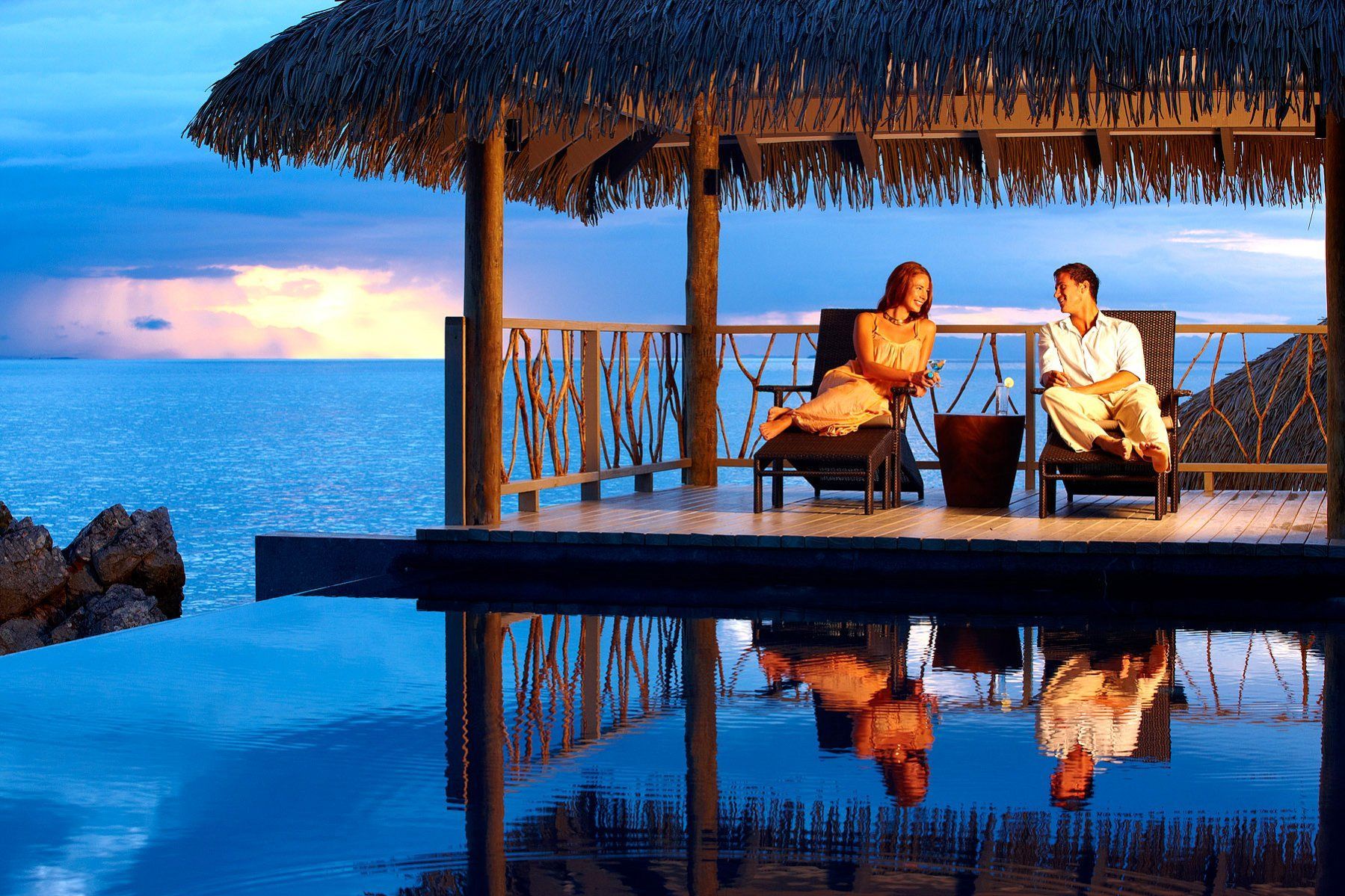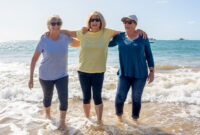Holiday destinations for older couples often prioritize comfort, accessibility, and enriching experiences. This guide explores ideal locations catering to the specific needs and preferences of mature travelers, examining factors like climate, accessibility features, suitable activities, and budget considerations. We’ll delve into diverse accommodation options and essential travel planning tips, ensuring a safe, enjoyable, and memorable vacation for older couples.
From tranquil seaside escapes to vibrant cultural hubs, we aim to provide a comprehensive overview of the best holiday destinations tailored to the unique requirements of older couples. Understanding their preferences for relaxation, cultural immersion, or adventurous exploration is key to crafting the perfect getaway. This guide offers practical advice and inspiration for planning an unforgettable trip.
Factors Influencing Destination Choice for Older Couples
Choosing a holiday destination is a significant undertaking for any traveler, but for older couples, the decision-making process often involves a more nuanced consideration of various factors. Comfort, accessibility, and a relaxed pace are often prioritized over adventurous activities or bustling nightlife favored by younger travelers. This careful selection ensures a memorable and enjoyable experience tailored to their specific needs and preferences.
Accessibility is Paramount for Older Couples’ Travel Planning
The importance of accessibility cannot be overstated when planning a holiday for older couples. This encompasses various aspects, from ease of navigation within airports and hotels to the availability of accessible transportation and attractions at the destination itself. For example, a couple with mobility issues would prioritize destinations with well-maintained pavements, readily available ramps, and elevators in hotels and public buildings. Destinations lacking such features can quickly become inaccessible and frustrating, leading to a less enjoyable holiday experience. Similarly, the availability of accessible transportation, such as well-maintained buses or trains with ramps and designated seating areas, is crucial for ensuring a smooth and comfortable journey. Destinations that offer accessible tours and excursions are also highly desirable. Consider a guided tour of historical sites with ramps and accessible pathways, or a boat trip with appropriate boarding facilities.
Climate Considerations for Older Couples
Climate plays a significant role in destination selection. Older adults are more susceptible to extreme temperatures, making moderate climates a preferred choice. Destinations with consistently pleasant weather, avoiding both extreme heat and cold, are highly desirable. For example, destinations in the Mediterranean, such as parts of Spain, Italy, or Greece, offer warm weather for much of the year, but without the extreme heat often experienced in tropical climates. Similarly, coastal regions in California or Florida offer mild climates suitable for many older travelers. Conversely, destinations with unpredictable weather patterns or harsh winters would be less appealing.
Cost Considerations for Older Couples’ Travel
Budget is a crucial factor. While younger travelers might be more willing to compromise on comfort for the sake of adventure, older couples often prioritize value for money. This involves considering not just the cost of flights and accommodation but also the overall expenses during the holiday, including food, transportation, and activities. All-inclusive resorts or packages can be attractive as they offer a predictable budget, eliminating the need for constant expense tracking during the trip. Furthermore, many older couples may prefer a shorter holiday to balance the cost of travel with the duration of their vacation.
Activity and Pace Preferences: Older Couples vs. Younger Travelers
The preferred pace and types of activities differ significantly between older and younger travelers. Younger travelers often seek adventurous and fast-paced activities, such as extreme sports or backpacking trips. Older couples, on the other hand, tend to prefer a more relaxed pace, with opportunities for gentle walks, leisurely sightseeing, and cultural experiences. Instead of strenuous hikes, they may prefer scenic drives or boat tours. The focus shifts from adrenaline-pumping activities to enriching experiences that cater to a more relaxed and comfortable pace of travel. Destinations offering a blend of cultural attractions, historical sites, and opportunities for relaxation are often more appealing to older couples.
Accommodation Options for Older Couples
Choosing the right accommodation is crucial for a relaxing and enjoyable holiday for older couples. Factors such as accessibility, comfort, and proximity to amenities play a significant role in determining the overall experience. This section explores various accommodation types suitable for older travelers, highlighting their advantages and disadvantages.
Hotels
Hotels offer a wide range of options, from budget-friendly to luxury establishments. Many hotels cater specifically to older travelers by providing accessible rooms with features like roll-in showers, grab bars, and adjustable beds. Larger hotel chains often have well-trained staff familiar with the needs of elderly guests. However, some older hotels may lack elevators or have limited accessibility features. The bustling atmosphere of a larger hotel might not suit those seeking tranquility. Examples of hotel chains known for their accessibility features include Marriott and Hilton, often offering accessible rooms upon request.
Resorts
Resorts generally provide a more all-inclusive experience, often with on-site restaurants, pools, and recreational activities. Many resorts offer accessible rooms and amenities, and the inclusive nature can simplify travel arrangements for older couples. However, resorts can be expensive, and the larger size might mean more walking is required. Some resorts specialize in catering to older adults, providing amenities such as gentle fitness classes and quiet relaxation areas. For instance, a resort specializing in wellness and relaxation might offer spa services and quiet gardens, reducing the need for extensive travel outside the resort.
Villas
Villas offer a more private and independent experience, often with fully equipped kitchens and ample space. This allows for greater flexibility and control over the holiday experience. However, renting a villa might require more planning and self-sufficiency, potentially involving more physical exertion in terms of housekeeping and grocery shopping. The advantage lies in the privacy and control, particularly beneficial for those seeking a quieter and more relaxed holiday. A villa with a ground floor bedroom and bathroom would offer superior accessibility for older travelers.
Cruise Ships
Cruises can offer a convenient and all-inclusive way to see multiple destinations without the hassle of frequent packing and unpacking. Many cruise lines offer accessible cabins and amenities, and the onboard services can be particularly helpful for older travelers. However, the constant movement and potential for seasickness can be challenging for some. Furthermore, the confined environment of a cruise ship might not appeal to all. Some cruise lines actively market to older travelers, offering shore excursions suitable for varying levels of mobility and providing assistance with boarding and disembarking. For example, Princess Cruises and Oceania Cruises are known for their focus on providing a comfortable experience for older travelers.
Health and Safety Considerations for Older Couples Traveling
Planning a trip, especially for older couples, requires careful consideration of health and safety aspects to ensure a smooth and enjoyable experience. Failing to adequately address potential health concerns and safety risks can significantly impact the overall trip satisfaction and even lead to unforeseen complications. This section will outline important considerations to help older couples plan a safer and more comfortable journey.
Recommended Health Precautions
Prior to departure, a comprehensive health check-up with their physician is crucial. This allows for the proactive identification and management of pre-existing conditions, ensuring necessary medications are available and appropriate travel advice is received. Discuss any potential health risks associated with the destination, such as infectious diseases or altitude sickness, and obtain necessary vaccinations or preventative medications. Consider travel insurance that covers medical emergencies and evacuations. Pack a well-stocked first-aid kit containing prescription medications, over-the-counter pain relievers, antiseptic wipes, bandages, and any other personal medical necessities. It is also advisable to carry a copy of their medical history and a list of emergency contacts. Regular exercise before and during the trip, if feasible, can help maintain physical fitness and stamina.
Emergency Contact Information
Maintaining a readily accessible list of emergency contacts is paramount. This should include the numbers for local emergency services (ambulance, police, fire), the couple’s family doctor, a trusted family member or friend, and their travel insurance provider. It’s also beneficial to share this contact information with a trusted person at home who can act as a point of contact in case of emergencies. Consider pre-programming these numbers into their phones or carrying a physical copy of the list. Knowing where to access emergency services in their destination is also critical; this information can often be found on the local tourist board’s website or in travel guides.
Essential Packing Checklist for a Safe and Comfortable Trip
A well-prepared packing list significantly contributes to a safe and comfortable journey. This list should include comfortable and supportive footwear suitable for walking and various terrains, lightweight and breathable clothing appropriate for the climate, any necessary medical supplies and medications (including a copy of prescriptions), a well-stocked first-aid kit, travel documents (passport, visa, flight/hotel confirmations, travel insurance details), sufficient funds (credit cards, cash), and a portable charger for electronic devices. Consider packing a small, lightweight walking stick or cane for added stability, especially if one or both individuals have mobility issues. Don’t forget items that provide comfort and familiarity, such as a favorite pillow or blanket. A personal locator beacon (PLB) or satellite messenger could be beneficial for remote locations where cell service may be unreliable.
Epilogue
Planning a holiday for older couples requires careful consideration of various factors, but the rewards are immeasurable. By prioritizing comfort, accessibility, and enriching experiences, you can create a truly memorable trip. Whether seeking relaxation, cultural immersion, or adventure, the right destination and thoughtful planning can ensure a safe, enjoyable, and rejuvenating vacation. Remember to factor in accessibility, budget, and health considerations to make the journey as smooth and fulfilling as possible.




